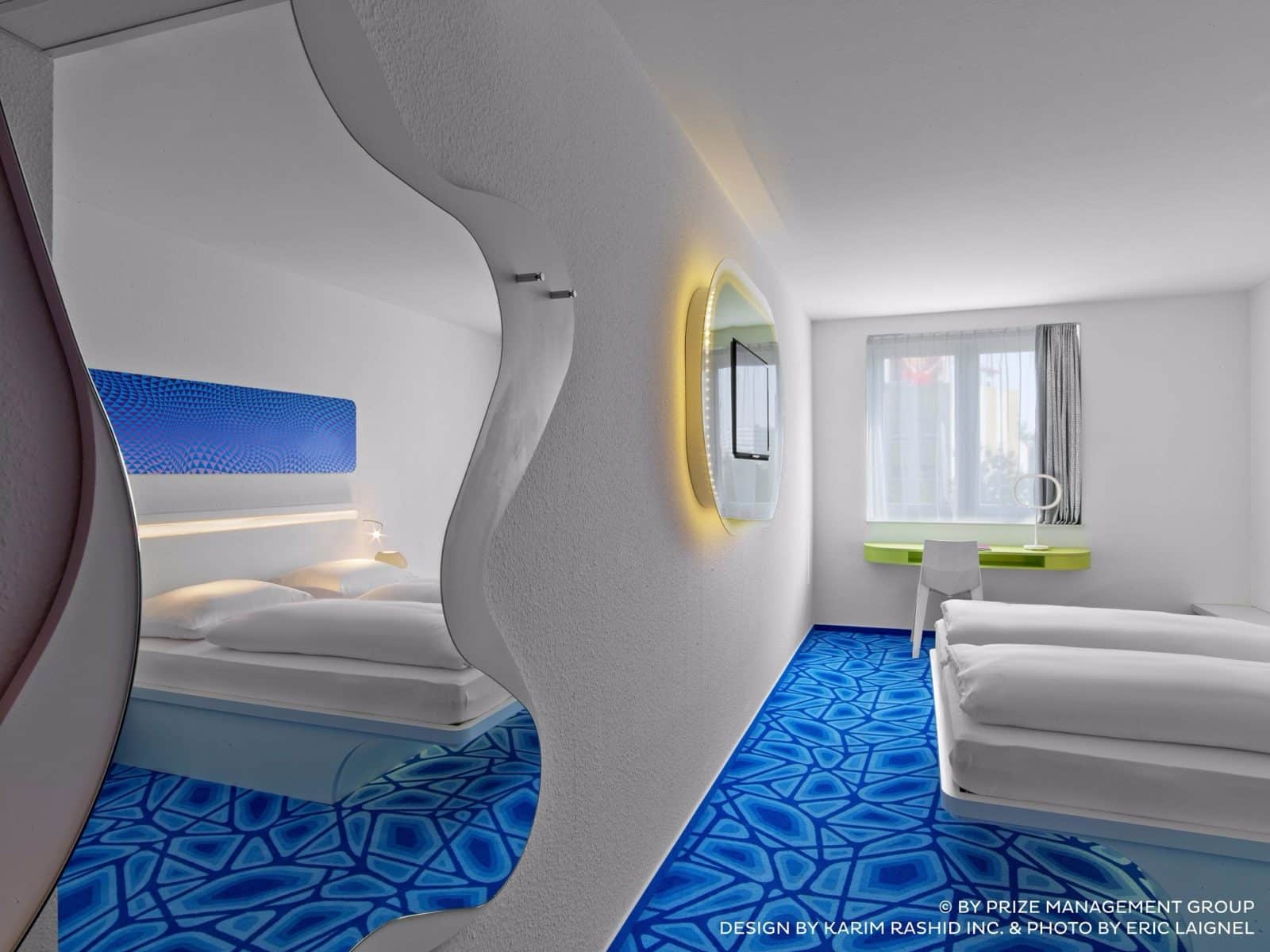By Joseph Fischer
Back in March during the IHIF 2017 I was interviewed to “Hospitality Pro” channel.
Today I would like to share with you some of my most recent experiences that lead me to believe that what I was saying is happening.
Maybe it is happening right now in a small way but as we know, in the global lodging industry changes take time.
A fortnight ago, I was in Copenhagen. We stayed in a “posh” lifestyle boutique hotel that could be easily categorized as an upscale 4 stars. That wasn’t a cheap hotel – 400$ per night.
Upon check-in, we asked to extend our official check-out time from 12:00 to 14:00. Our host told me that there is no problem. We were told that we will have to pay the hourly extension tariff which is 1/24 from our daily charge. That was a “first timer” for me. Some hotels are giving 1-2 hours free of charge, others ask you 50% of the daily rate; however, I find that the idea of charging you by the hour feels more “fair”.
The other point was during breakfast. We booked our room on a BB package. Room only is also available. You get a nice buffet, a “Danish breakfast”.
The regular coffee is served free of charge; however, if you wish to have coffee specialties – Espresso, Latte, Americano, or any other specialty coffee – you are charged extra.
The same idea applies for egg specialties. On the breakfast buffet, you have either scrambled or boiled eggs. If you wish to have an omelet, sunny-side up, you can order it for an extra.
It takes time getting used to, but I am sure that in time and with the right approach guests will get used to it. On that point, most recently Marriott changed its hotel room cancelations policy.
The world’s largest hotel chain announced that customers must give at least 48-hours notice if they plan to cancel a reservation — or cough up a fee equivalent to one night’s stay.
Copenhagen was the start and end point on an 11 days cruise which was a first time for me. During the cruise, I saw some things that could be used also in and around hotels.
Secured luggage spaces: most hotels I know, give hotel guests checking in and checking out secured luggage rooms. In some cases, as I witnessed in my career, the luggage can stay for days, weeks and in extreme cases several weeks.
In the cruise I have been onboard, once you check out you can book a shuttle service that takes you to Copenhagen city center. If you are flying out the same day and have a few hours to kill, you have a secured luggage terminal where you can leave your belongings and visit the city.
Clearly depending on the level of the hotel, this idea could be tested, not at a Four Seasons, Ritz or Kempinski. I see no reason not to charge for secured storage. It’s space and security we are selling.
Some ideas I got from our cruise trip that might be well-accepted in hotels:
- A wine dispenser. Guests use their room keys as a payment method and can get wine on a per glass portions from wine dispensers. Guests could buy a “beverage package” that can be used during their stay onboard.
- Wi-Fi: During an 11 days cruise, Guests receive a free 220 minutes internet allowance per cabin that can be extended on a per minute or a per day basis. Guests could choose from 3 different Wi-Fi speeds – basic, high speed and super-high speed that allows you to download streaming videos and watch live TV feeds.
We know that in hotels, Wi-Fi connectivity is a major issue.
So, if guests just want to look at their E-mails or connect to their social networks, they can get this basic internet free of charge.
However, if they want a high-speed Wi-Fi that allows them to watch streaming videos, live TV, connect on Skype or WhatsApp, they should pay a small premium.
Works on cruises and onboard some big commercial airlines, there is no reason to give such an expansive to maintain service for free.
In recent years hotels have been losing on several revenue streams. Many hotels get rid of minibars simply because it has become too costly to replenish the minibars. In many hotels, the room-service department has turned into a cost-center and brings losses. Phone operator and in-house phones are becoming a thing of the past with almost each guest has his or her Smartphone. Pay TV’s are also dying in favor of guests watching their favorite movies or TV programs on their laptops or iPads.
Maybe in some cases and clearly not in all hotels, hotels should consider focusing on 2 major key elements for their ever-changing guest.
Clearly the “Experience” is important but isn’t it being used too often nowadays?
The major ingredients to a good hotels stay are: The sleeping experience – hotel accommodations: a comfortable bed, air-condition, clean rooms, a good strong shower, excellent noise isolation and lastly the ever-important location.
Let’s see how you can find ways to get your guests to pay for “extra” services they consume, i.e. Wi-Fi, parking, breakfast, concierge service, extra toiletries and turndown service and reduce the basic price on a per night stay without losing them or alienating them.
About me:
I am a strategic thinker, with extensive management experience in the tourism and lodging industry. I am an innovator, an out-of-the-box thinker, flexible, with plenty of tangible and ready-to-be-implemented ideas that can resolve and overcome today’s industry challenges. Downturn economies are great opportunities for take-overs and launching new concepts, and that’s where I can offer my abundant experience, knowledge, and contacts. I welcome the opportunity to further discuss mutually beneficial partnerships.


